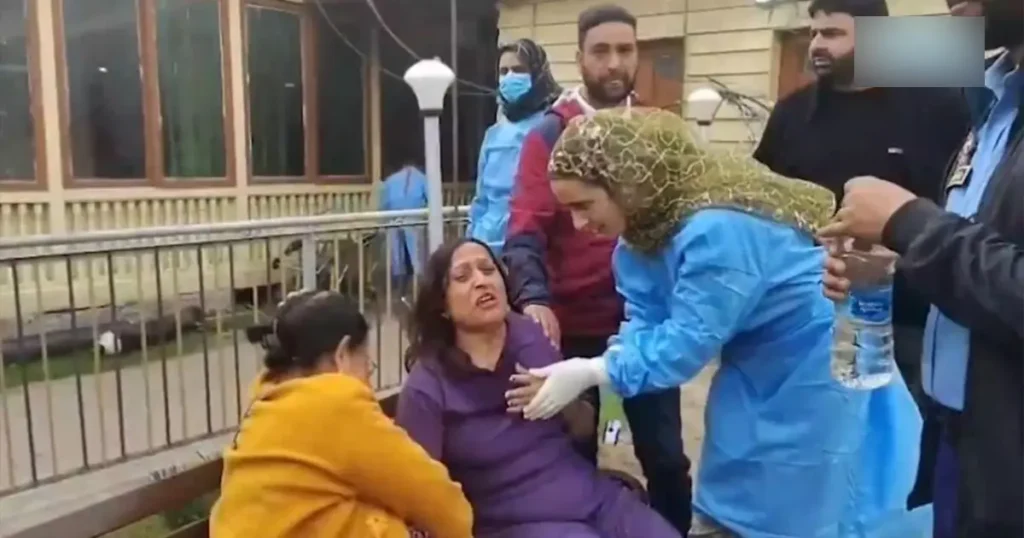On April 22, 2025, the serene landscapes of Pahalgam in Jammu and Kashmir were shattered by a brutal terrorist attack that claimed the lives of 28 tourists and injured several others. This incident, occurring in the Baisaran Valley—a popular tourist destination—has reignited concerns about security and stability in the region.
The Attack: What Happened?

Around 1:00 PM IST, four unidentified gunmen descended from the surrounding forests into Baisaran meadow, approximately 5 kilometers from Pahalgam. They opened fire indiscriminately on a group of tourists, resulting in 28 fatalities and numerous injuries. The victims included 22 Indian tourists from various states, two local residents from Jammu and Kashmir, and two foreign nationals—one from the United Arab Emirates and another from Nepal.
The meadow’s remote location, accessible only by foot or pony, posed significant challenges for immediate evacuation. Local residents and security forces assisted in transporting the injured to nearby hospitals.
Immediate Response
In the aftermath, Indian authorities launched a massive manhunt to apprehend the perpetrators. Union Home Minister Amit Shah traveled to Srinagar to assess the situation and coordinate the security response. Prime Minister Narendra Modi, on an official visit to Saudi Arabia at the time, condemned the attack and assured that those responsible would be brought to justice.
Reactions and Condemnations
National Leaders
- Prime Minister Narendra Modi: Described the attack as a “heinous act” and emphasized that the perpetrators would not be spared.
- Union Home Minister Amit Shah: Visited the site and coordinated with local authorities to enhance security measures.
- Defence Minister Rajnath Singh: Labeled the incident an “act of cowardice” and reiterated the government’s commitment to combating terrorism.
International Community
- United States: President Donald Trump and Vice President JD Vance, who was visiting India at the time, condemned the attack and extended condolences to the victims’ families.
- Russia: President Vladimir Putin denounced the attack, calling it a “brutal crime” with no justification.
- Israel: Foreign Minister Gideon Sa’ar expressed deep sorrow and solidarity with India in its fight against terrorism.
Historical Context
Kashmir has long been a region of contention between India and Pakistan, with both countries claiming it in full but controlling only parts. The region has witnessed various insurgencies and militant activities since 1989. In 2019, the Indian government revoked Article 370, which granted special autonomy to Jammu and Kashmir, leading to heightened tensions and increased security measures.
Despite a decline in militant activities in recent years, sporadic incidents like the Pahalgam attack highlight the persistent volatility in the region.
Impact on Tourism
Pahalgam, often referred to as “mini-Switzerland,” is a significant tourist destination known for its scenic beauty and as a starting point for the annual Amarnath Yatra pilgrimage. This attack is likely to have a detrimental impact on tourism, with potential visitors reconsidering their travel plans due to safety concerns.
Security Measures and Future Outlook
In response to the attack, security forces have intensified operations to locate and neutralize the perpetrators. Authorities are also reviewing and enhancing security protocols to prevent such incidents in the future. The government has urged citizens to remain vigilant and report any suspicious activities.
Conclusion
The Pahalgam terror attack serves as a grim reminder of the fragile peace in Jammu and Kashmir. While efforts have been made to restore normalcy and promote tourism, such incidents underscore the need for continued vigilance and comprehensive strategies to address the underlying issues fueling militancy in the region.


